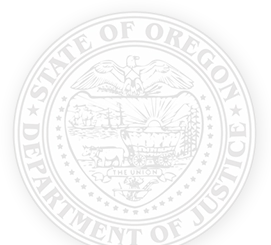
October is Domestic Violence Awareness Month
During Domestic Violence Awareness Month, we recognize survivors of domestic violence and raise awareness about the ongoing efforts to decrease domestic violence in our communities.
The Oregon Child Support Program plays a critical role in supporting survivors and their families by providing safe, accessible pathways to financial independence for those affected by domestic violence. Child support is often a lifeline for survivors, but many worry that seeking support may trigger further violence. Our goals are to make the process safer and to better inform both survivors and our employees.
We are committed to helping survivors feel empowered and safe to pursue child support. We’re currently working on several initiatives:
- Launching a domestic violence webpage that includes resources and frequently asked questions on child support and safety
- Providing ongoing training for our employees to safely identify and address domestic violence concerns
- Creating partnerships with community organizations to increase awareness and offer comprehensive support to survivors
Domestic Violence Awareness Month was first observed in October 1981 as a way to unite advocates against domestic violence. A national campaign began in 1989. Today, the campaign brings organizations and individuals together to continue to raise awareness about domestic violence.
This year’s theme is Heal, Hold & Center, which focuses on embracing the many cultural ways we can heal from violence and oppression, committing to hold space for survivors, and centering those most marginalized in our efforts to end domestic violence.
Together, we can help build safer futures for all families. If you or someone you know needs help, please use the resources below or reach out to the National Domestic Violence Hotline at 800-799-SAFE (7233).
Domestic Violence Resources
Child Support When You Are Afraid of the Other Parent FAQs
This FAQ page provides important information to help survivors of domestic violence make informed decisions about safety while accessing child support services in Oregon.
If you need help planning for your safety in an abusive relationship, the domestic violence or sexual assault program in your area can help customize a plan to help you get out safely. It provides information on safety during a domestic violence incident, when preparing to leave, and with a restraining order.
For Survivors, the Domestic Violence Awareness Project
The Domestic Violence Awareness Project supports and promotes national, Tribal, territorial, state, and local advocacy networks in their ongoing public education efforts through awareness, strategies, materials, resources, capacity-building, and technical assistance.
National Domestic Violence Hotline
The National Domestic Violence Hotline provides essential tools and support to help survivors of domestic violence so they can live their lives free of abuse. This includes crisis intervention, safety planning, emotional support, and referral to resources such as shelters and legal services.
Office of Child Support Services: Family Violence
This page offers resources and tools from the Office of Child Support Services for promoting safe access to child support.
The Oregon Coalition Against Domestic and Sexual Violence provides a list of shelters, advocacy, and legal assistance programs in your area.
Oregon Department of Human Services: Domestic Violence Services
The Oregon Department of Human Services provides resources and support for domestic violence survivors, including financial assistance, safety planning, and access to shelters and legal services.
Safety Net Project Technology Safety and Privacy: A Toolkit for Survivors
The Safety Net Project develops resources and information on the use of technology for agencies and survivors of domestic violence, sexual assault, stalking, and trafficking. This page provides safety tips, information, and privacy strategies for survivors on the use of technology.
.
